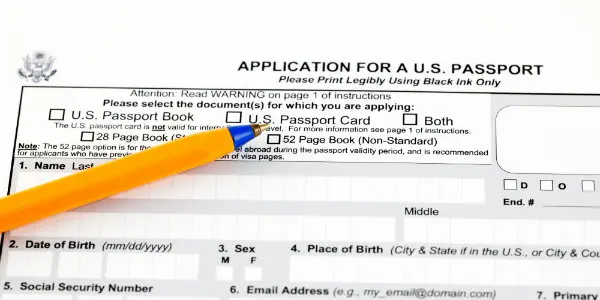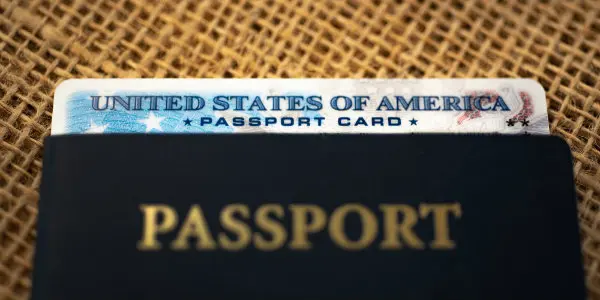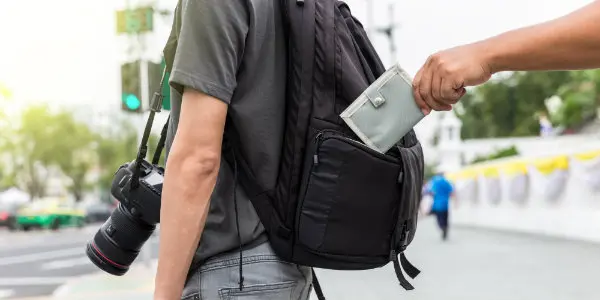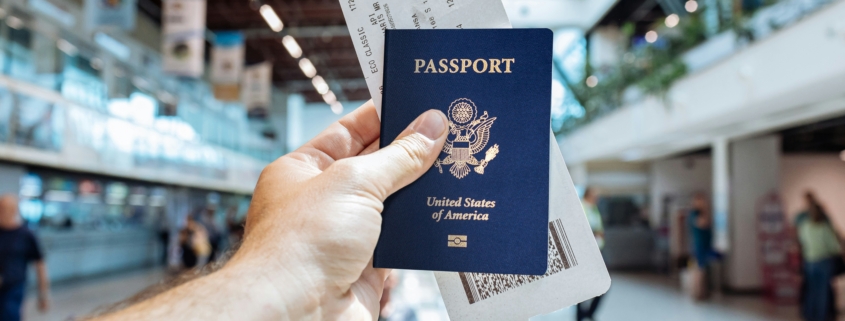7 Things to Know about Passports
Nothing brings me more joy than helping plan your first family vacation abroad or bringing that bucket list destination within reach. I know international travel can feel overwhelming at first, especially regarding passports and documentation. Let me walk you through some key passport tips to ensure your journey starts smoothly.

1. Where can you apply for a passport?
If you are applying for a passport for the first time, you will need to submit your application in person. Local post offices and government offices can accept applications and some library systems. You can use this tool to find a facility in your area.
For renewals, eligible U.S. citizens can complete the process online, but the mail-in option is also available.

2. How long does it take to get a passport?
You’ll want to check the official site for current processing times. If you apply for an expedited service at an additional fee, you will likely receive it more quickly, but that is never guaranteed.
Always check the expiration date a few months before you travel to ensure you have enough time to renew and receive a new passport if needed. Passports issued to travelers 16 and older are valid for 10 years, while those issued to travelers under 16 are only valid for 5 years.

3. What’s the difference between a passport book and a passport card?
A passport book is the only document that is approved for international air travel. It is required for any trip to Europe, Asia, Australia, Africa, South America, and Antarctica.
A passport card is a wallet-sized document that can be used to re-enter the United States by land or sea from Canada, Mexico, the Caribbean, and Bermuda. It cannot be used for air travel to these destinations. The card’s original purpose was to serve those who live close to these borders and must cross them frequently.
Some travelers may be tempted to apply for a card because it is less expensive, but in most cases, it will not meet the requirements for travel. It is crucial to understand that if you are cruising, and in the event of an emergency, you will not be able to fly without a book. It takes the same amount of time to receive a card as it would the book.

4. Do children need a passport to travel?
Yes. Any person traveling internationally needs a passport, no matter how young. A minor under 16 must have parental or a legal guardian’s consent to apply. Those under 16 must also apply for their passport in person for the first time and when applying for a renewal.

5. How can you keep your passport safe while traveling?
It’s recommended that you only carry your passport when you need it. In all other cases, it should be locked away. When holding your passport, using a cover with RFID shielding is a good idea to prevent scanning.
You should also make it difficult to reach your passport when carrying it. Keep it in an internal zipped pocket of your purse, in a money belt, or deep down in the bottom of your travel bag. Make sure not to leave it in your luggage or another bag that could be easily taken or lost.

6. What to do if your passport is lost or stolen?
If you lose their passport or suspect it was stolen, you should report it according to the instructions from travel.state.gov. Once a passport is reported lost or stolen, it is invalid and cannot be used for travel. The holder must apply for their new passport in person.
If your client’s passport is lost or stolen when traveling internationally, they should follow these steps.
7. Where can my clients and I find out more about passports?
For more information on forms, fees, and wait times, visit travel.state.gov. You can also find more frequently asked questions and the most up-to-date information there.











